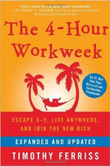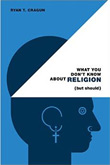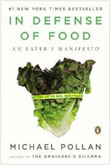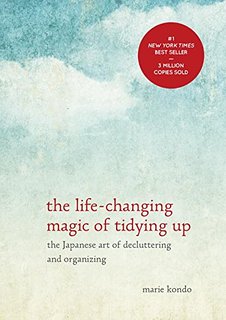How Do You be a Good Person?
Brandon Sun, December 24, 2018 – David McConkey
Do you remember the episode of The Good Place when Chidi learns why he has been sent to hell? You may not watch this TV comedy, but its premise is a question that can also pop up at this time of year. Perhaps you ask this question when you are considering gifts and charitable giving. Or when you are making New Year’s resolutions. Or when you are taking a quiet moment amidst the holiday hubbub. The question is both an ancient and a modern one: How do you be a good person?In the TV show The Good Place the character Chidi Anagonye at first wonders: Is he being punished in the afterlife because he continued to use almond milk in his coffee? Even though he had read somewhere that almonds might be bad for the environment? No, that was not why.
The reality of his life was much worse: Chidi had been a bad person. He meant well, but because of his rigidity and indecisiveness, he had hurt everyone around him. Ironically, Chidi was a professor of ethics and moral philosophy! Talk about the road to hell being paved with good intentions!
I happen to believe that most folks aspire to be good people – we try to create a good life for ourselves while being good to others we meet along the way. But we can be hampered by restrictive cultural norms. It’s like being Chidi: even if we think we are being good people, we can be morally blind.
Now it turns out we don’t need an anthropologist to visit an exotic location to see how this might happen. We can recall Canadian society of half a century ago. (You younger folks can Google it. I can remember what it was like when I was growing up!)
In the Canada of the 1950s and ‘60s, even those who thought they were being good people did many bad things. They committed – or enabled or tolerated or looked the other way from – acts that we today view as unconscionable. As hard as it is to understand now, people back then did not realize the extent of – or the harm caused by – many abusive behaviours. I count among those behaviours the domestic assault of women, the physical and sexual abuse of children, sexual discrimination and harassment in the workplace, the mistreatment of LGBT individuals, and the discrimination against those of different races.
Take the LGBT example. Ordinary folks back then thought they were being good people by mistreating LGBT individuals. How could that be? Well, homosexuality at that time was condemned by cultural norms – especially religious beliefs. It was regarded as a disorder by the psychiatric profession. And, before 1969 in Canada, it was illegal.
During the last half century in Canada, we have made astounding moral progress. Our understanding has been enlarged of what it means to be a good person. Modern thinkers continue to explore and expand on this. An example I have mentioned before in this space: the humanism described by Steven Pinker in his new book Enlightenment Now. Another great new book is Yuval Harari’s 21 Lessons for the 21st Century. Harari outlines the characteristics of an ethical code for today: truth, compassion, equality, freedom, courage and responsibility.
I note these new books to reference the varied and on-going nature of this discussion. I also point out that these modern sources offer more profound ethical insights than those found in traditional works like the Bible or the Qur’an.
Where’s all this going? Soon, the law in Canada will be changed to outlaw the spanking of children. Later, there likely will be more attention paid to the inequality among the world’s people, to the environment, and to the treatment of animals. Another theme will be refining the meaning of patriotism in one’s own country in the context of being a global citizen. Still another promising avenue: a coming together of science, ethics and spirituality.
I am in awe of the moral progress that has occurred during my lifetime. I sometimes stop and reflect on how inspiring this is. (I also pause to watch The Good Place and laugh along while Chidi teaches moral philosophy!) And I am excited by the continuing conversation. The enduring topic: How do you be a good person?
* * *
See also:
Enlightenment
Values Are Needed Now More Than Ever
What Can We Learn from the New Science of Psychedelics?
More Than Ever, Words and Ideas Matter
How Can We Learn to Think and Argue Better?
Reckoning Can Even Include “Death Cleaning”
Spanking Shouldn’t be a Hit With Parents
Effective
Altruism Poised to Make Major Impact
Popular Right Now:
- 15 Tips for Healthy Eating
- Quality of Life, Well-Being Research Something We Can Feel Good About
- Diets Don't Work, So What Does?
- Political Contributions: Top Ten Canadian Tax Tips
- Nestle Fitness 14 Day Weight Loss Program; What is Wrong Here?
- Charitable Donations: Top Ten Canadian Tax Tips
Must Read Books:
The 4-Hour Workweek:
Escape 9-5, Live Anywhere, and Join the New Rich

What You Don't Know About Religion (But Should)

In Defense of Food:
An Eater's Manifesto

The Life-Changing Magic of Tidying Up:
The Japanese Art of Decluttering and Organizing

Don't
Even Think About It:
Why Our Brains are Wired to Ignore Climate Change

Like This? Share It!
Press Ctrl + D to Bookmark!
